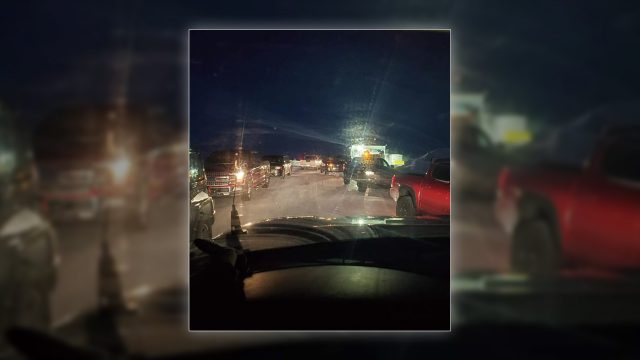
(Residents blockaded the entrance to the mine after a group of workers from Quebec arrived to travel to the mine from the Rankin Inlet airport. Twitter/Noel Kaludjuk).On March 11, the World Health Organization (WHO) declared COVID-19 a pandemic. APTN News is reporting from across the country on the viral outbreak and how it is impacting Indigenous communities. Read more here: COVID-19 APTN News
People in the Nunavut community of Rankin Inlet blocked the road leading to the local goldmine Wednesday in an effort to keep their region COVID-19 free.
The Agnico-Eagle Meliadine gold mine is located about 25 kms north of Rankin Inlet, the most populous community in Nunavut’s Kivalliq region and a central hub for the surrounding communities. It employs nearly 400 Inuit from many Nunavut communities.
Late on March 18, residents blocked the road to the mine after a planeload of workers from outside the territory arrived at the airport and were ready to head to the mine site.
Earlier this week, Nunavut’s Chief Public Health officer Dr. Michael Patterson asked non-essential people from outside the territory not to travel to Nunavut. Anyone who does travel to the territory from
outside areas is being asked to self-isolate for 14 days.
Agnico-Eagle has now followed what other Nunavut mines are doing; sending all their Nunavut-based staff back to their home communities with pay.
The mines are screening their employees, and without contact with Nunavut communities, say COVID-19 infection won’t spread from the mines to the communities.
Nunavut’s Minister of Economic Development and Transportation David Akeeagok was a new addition to the daily Nunavut press briefing, to discuss the mine blockade.
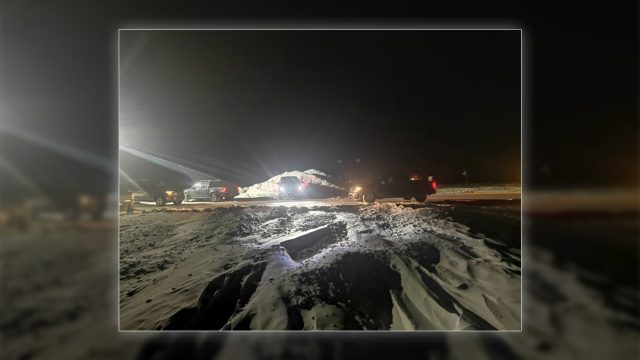
“I’m aware of what happened in Rankin, regarding the blockade last night,” said Akeeagok. “I understand the concerns of Kivalliq residents about the COVID virus, and the mining operations.
“I want to assure everyone that screening was started by Agnico-Eagle before self-isolation of travellers to Nunavut [began]. Anyone travelling to their site has been screened for international travel and flu-like symptoms.”
Patterson has also been working to help settle the access issue in Rankin Inlet. He arrived at the daily press briefing from a meeting with the Kivalliq Inuit Association, the land claim organization responsible for Nunavut’s central Kivalliq region, and mine officials.
“It was mentioned that they rerouted the staff, so they no longer go through the airport. They get off the plane straight onto a bus, which is operated by the mine and drive straight to the mine. They leave in the same fashion,” explained Patterson.
“There is no longer any contact between mine staff and residents of Rankin Inlet.”
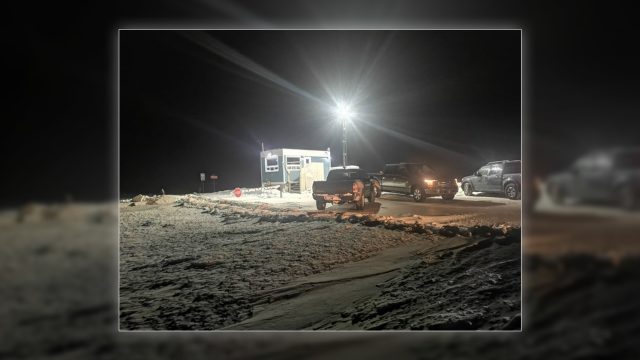
Akeeagok promised that any discussions will include the regional Inuit Association, Rankin Inlet town council, the mine and the government. Health and Finance Minister George Hickes appealed for calm.
“I know the intentions are well meant, but any time we’re disrupting travel or movement that has been planned, and health considerations have been taken into that plan, when we disrupt those plans it has the opposite effect. It can actually put people at risk,” he said.
Every community is taking its own approach when dealing with COVID-19.
In Iqaluit, people lined up outside the only retail alcohol outlet in the territory for the second day in a row.
Many residents fear their access to beer and wine may be curtailed if more measures to fight the virus are taken. Inside the store, packing tape marks one-metre intervals to enforce social distancing, and they’ve limited the amount of people allowed inside the store at one time.
There are no immediate plans to limit access to the Beer and Wine Store, social services or even the motor vehicles department.
But if a test comes back positive, Patterson said that could change.
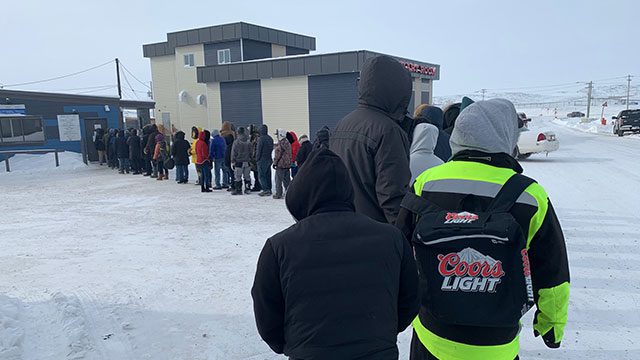
(Line-up outside the Beer and Wine store in Iqaluit, the only alcohol retail store in the territory. Kent Driscoll/APTN News)
“If we find cases of COVID-19 in a community, we will reduce service to the bare minimum in that community. There are some essential services that have to run at all times – water, power – and we’ll look to specific travel restrictions to that community.”
If it gets worse, the response grows.
“If COVID-19 arrives in multiple communities at the same time, we’ll look at further restrictions on
travel, but that’s a contingency plan we would follow under the worst circumstances,” explained Patterson.
At Thursday’s daily government briefing, Premier Joe Savikataaq led with the numbers noting Nunavut remains COVID-19 free.
“There’s been 70 tests done, and the ones that have come back, have come back negative,” said Savikataaq. “We have 24 people who were under self quarantine who are free to go about their normal daily lives now.”
The premier also got specific about funding initatives he mentioned at the beginning of the week.
He announced Nunavut’s local hunters and trappers associations will receive $25,000 “to buy country food – whether that be fish, caribou, seal – to disperse within the community to help with food insecurity.”
An additional $531,000 has been set aside for Nunavut’s licensed daycares.
Savikataaq explained, “We’ll be paying what their parents normally paid as daycare fees, so that daycare workers will continue to get paid.”
There is also a plan in the works to support food banks and kitchens, but the premier wasn’t ready to go into specifics there.
Non-urgent medical travel has now been suspended, but not before some Nunavut residents were sent to southern hospitals, only to learn their appointment had been cancelled.
“As of today, most scheduled medical travel has been cancelled,” said Patterson. “What was happening was people were going South, to find out their appointments had been cancelled and we were not aware of it. What we’re doing as of today is cancelling the travel south, and either arranging for telehealth or rearranging at a later date.”
Urgent cases will still be sent south.
Nunavut’s Health Minister George Hickes has been pushing Nunavummiut to respect social distancing, and admitted some frustration today.
“I strongly recommend that if people are picking up passengers at the airport, and in the airport,
unless they have an actual physical handicap or mobility issues, to wait outside for any passengers departing,” said Hickes. “There’s no need to go into the facility.”
Hickes also stressed the need for self-isolation.
“That doesn’t mean getting out of the airport and getting groceries. It means leaving the airport and going home. Self-isolation is not an option.
“If we really want to make an impact on limiting COVID-19 in Nunavut, we all have to participate. Everybody, every single one of us has to adhere to the guidelines that our health professionals are recommending to us to follow.”
Savikataaq was on the same page.
“When you come in from the South, when you get to the airport, please don’t hug and kiss,” the premier said.
“I know it’s hard, because you’ve been away and your family and your friends are there, but Nunavummiut, all of us have to do our share to get into the habit of doing all these precautions, so if COVID-19 appears, our habits are ingrained so that we can stop the spread.”
kdriscoll.ca




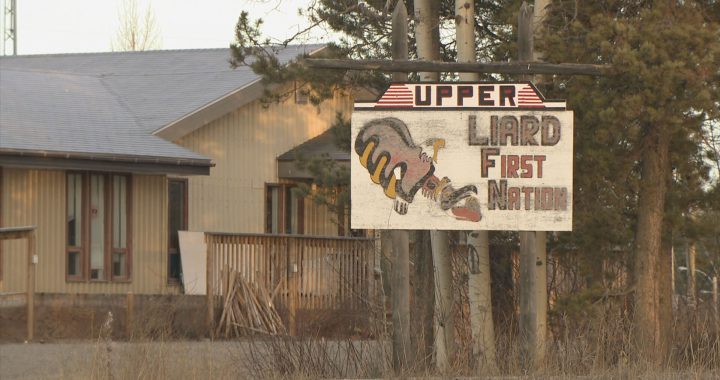

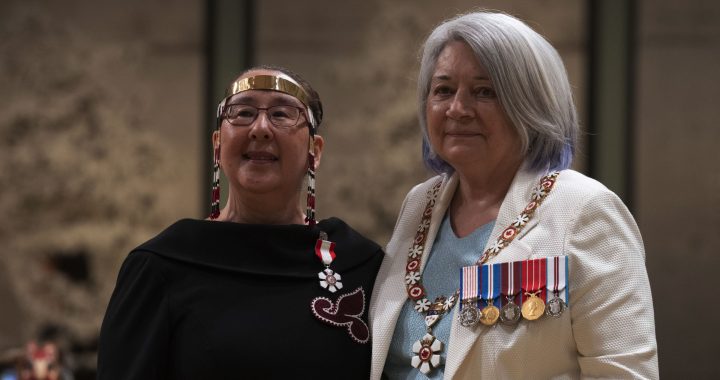
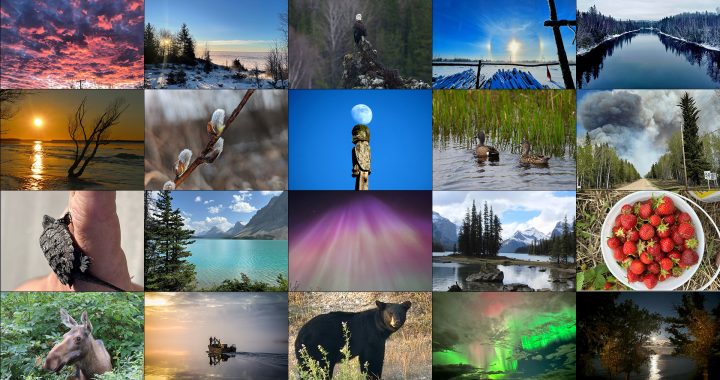
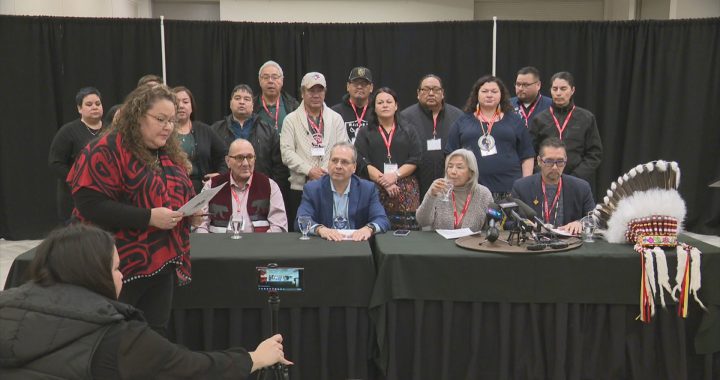
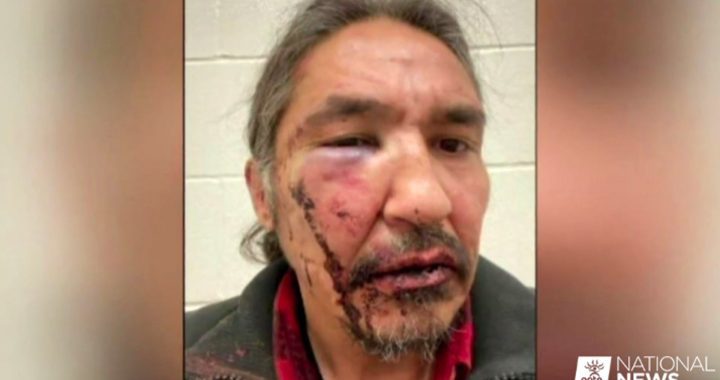

Keep them out don’t listen to outsiders, their only in for profit
Mines must be shut down
APTN #Faill
of course “reporting” on the beer and wine line up right after the
blockade will encourage racist pro resource extraction peeps to degrade
indigenous and undermine their right to stop the mine workers from
flying in spreading covid19. I am sure there is a line up to the grocery
story too & no colonial articles showing line ups at liquor stores
are tied to resource extraction stories….why? ugh thought aptn was
suppose to help stop the racism?